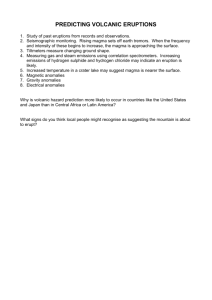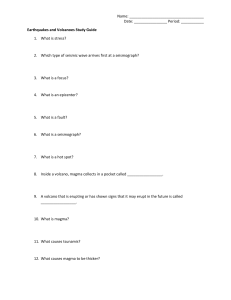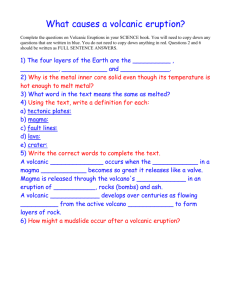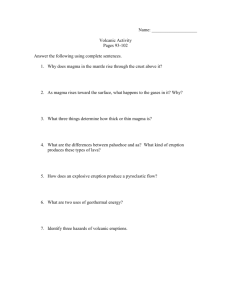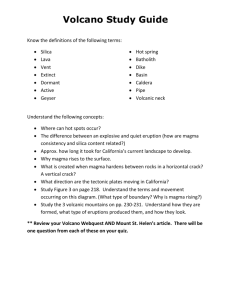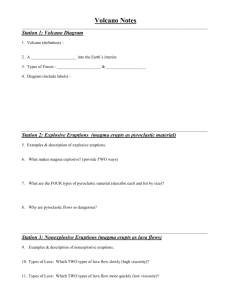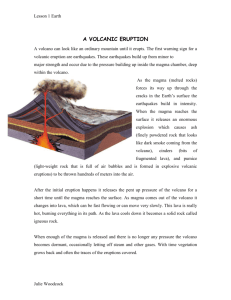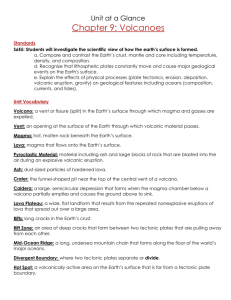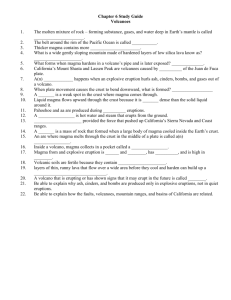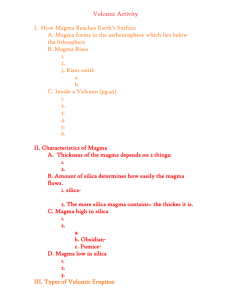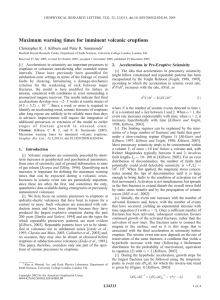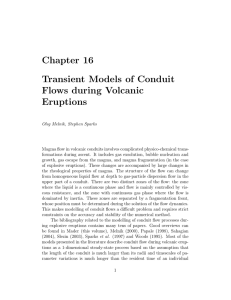Name: Period: Week 26 Assessment 3/14/2014 (pi day!!) /10 The
advertisement
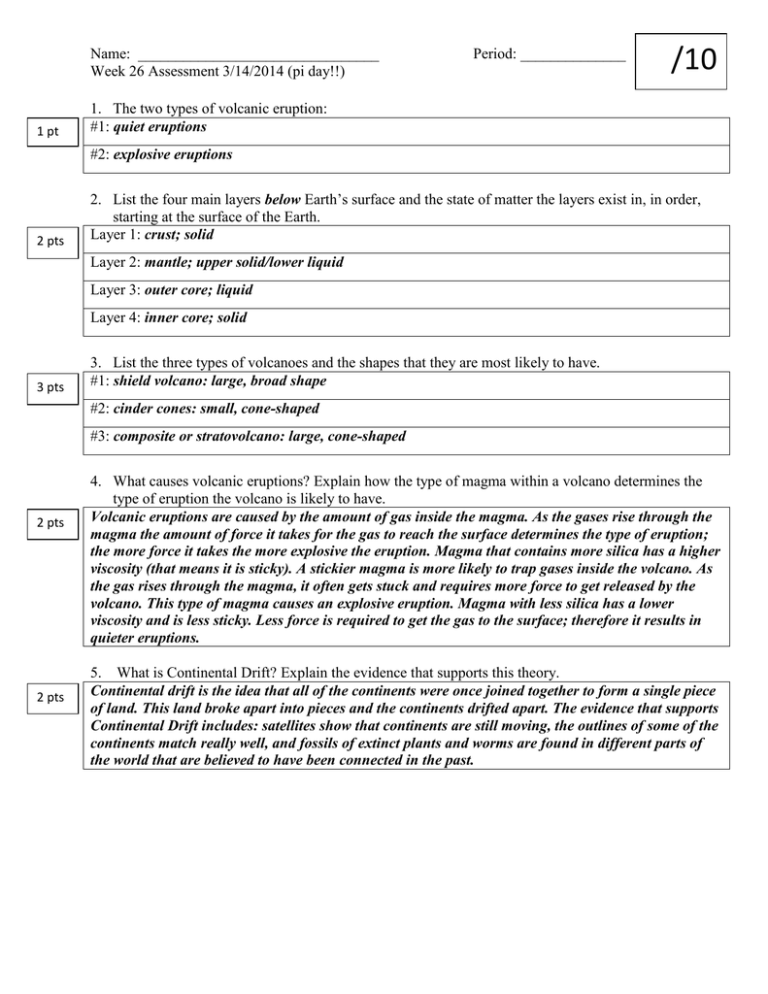
Name: ________________________________ Week 26 Assessment 3/14/2014 (pi day!!) 1 pt Period: ______________ /10 1. The two types of volcanic eruption: #1: quiet eruptions #2: explosive eruptions 2 pts 2. List the four main layers below Earth’s surface and the state of matter the layers exist in, in order, starting at the surface of the Earth. Layer 1: crust; solid Layer 2: mantle; upper solid/lower liquid Layer 3: outer core; liquid Layer 4: inner core; solid 3 pts 3. List the three types of volcanoes and the shapes that they are most likely to have. #1: shield volcano: large, broad shape #2: cinder cones: small, cone-shaped #3: composite or stratovolcano: large, cone-shaped 2 pts 2 pts 4. What causes volcanic eruptions? Explain how the type of magma within a volcano determines the type of eruption the volcano is likely to have. Volcanic eruptions are caused by the amount of gas inside the magma. As the gases rise through the magma the amount of force it takes for the gas to reach the surface determines the type of eruption; the more force it takes the more explosive the eruption. Magma that contains more silica has a higher viscosity (that means it is sticky). A stickier magma is more likely to trap gases inside the volcano. As the gas rises through the magma, it often gets stuck and requires more force to get released by the volcano. This type of magma causes an explosive eruption. Magma with less silica has a lower viscosity and is less sticky. Less force is required to get the gas to the surface; therefore it results in quieter eruptions. 5. What is Continental Drift? Explain the evidence that supports this theory. Continental drift is the idea that all of the continents were once joined together to form a single piece of land. This land broke apart into pieces and the continents drifted apart. The evidence that supports Continental Drift includes: satellites show that continents are still moving, the outlines of some of the continents match really well, and fossils of extinct plants and worms are found in different parts of the world that are believed to have been connected in the past.
